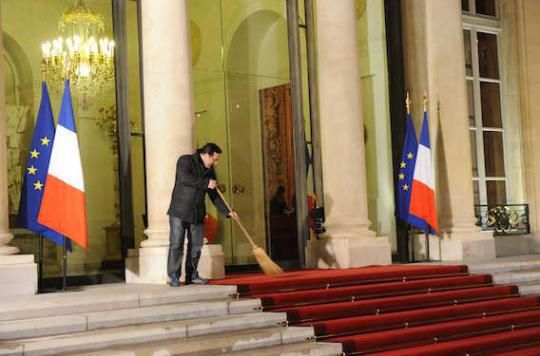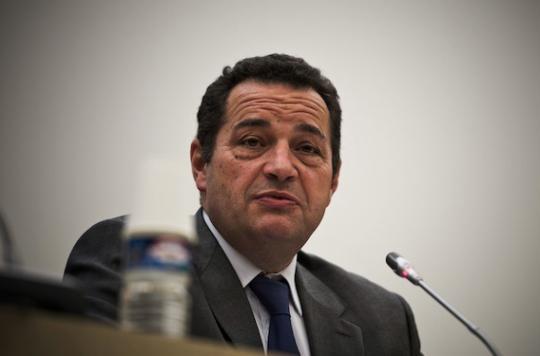The 7 candidates for the primary from the right and from the center answer the questions of Pourquoidocteur. This Thursday, it is the turn of the former Prime Minister, Alain Juppé.

While the right and center primary for the presidential election will take place on November 20 and 27, the time for the first of three television debates is fast approaching. With a river duration of 2h30, it will take place on October 13 on TF1, RTL, Public Senate and LCI. It will see the seven competitors compete against each other on the themes of unemployment and security. And what about health?
In a recent poll, 69% of French people make this theme a major element of the campaign. And almost the same proportion of those questioned considers that the positions of the candidates on health policy will be decisive in their choice.
To meet the expectations of future voters, the drafting of Why actor interviewed all candidates by asking them the same questions. This Thursday, the series continues with the current mayor of Bordeaux (Gironde), Alain Juppé. The one who has dominated the polls for months will be received tonight in Political Emission of France 2 moderated by David Pujadas and Léa Salamé. But before that, he gave us his program on subjects as varied as assisted reproduction, medical deserts, the price of innovative drugs, etc.
The community will no longer be able to cover the cost of innovative drugs. Should we devote a specific budget to the support of these therapies, and how to finance it?
Alain Juppe : I’ll start with the basics: the arrival of innovative drugs is excellent news. This does not call into question the principle of collective financing of health expenditure: otherwise, how could we treat ourselves in the event of serious illness? Financing these products is possible. First, by no longer tolerating waste or unnecessary expenditure. Then, I want a term of office pact with manufacturers, giving them visibility and stability: this is the key to research and employment. Price negotiations must be proactive and be based on international and European cooperation. It is also necessary to be much more demanding on the reality of the actual benefit, with independent experts. Finally, I want to implement a policy of good drug use and bring us up to the level of our most efficient European neighbors.
 |
Medication
|
The complementary health insurance is committed to an insurance model à la carte. Should we financially encourage policyholders who have a healthy lifestyle (diet, physical activity, etc.) and / or penalize those who take risks (alcohol, tobacco, etc.)?
Alain Juppe : I am hostile to reimbursements based on behavior: otherwise, it is the door open to all discrimination. But we must change the situation and, above all, take action in terms of prevention. I want to increase the resources devoted to it by 10% in five years. Each year, a report on the state of health of the French will be made public. Next, I want to devote three major projects to major priorities: maternal health and that of children and young people, the fight against all addictions, and finally the links between health and the environment.
We need to build a prevention policy that is better integrated into the health pathways: this requires an evolution of the study program for health professionals and the strengthening of the role of the general practitioner as “prevention advice.” Health insurance must also get involved: beyond the age of 50, each insured person will receive an invitation to consult their attending physician for a preventive medical consultation.
 |
Supported
|
The hospital must simultaneously reconcile medical excellence with its social missions. In view of the budgetary constraints, does activity-based pricing (T2A) appear to you to be suited to this dual requirement?
Alain Juppe : Basing the funding of the hospital on activity-based pricing is a good principle, which makes it possible to take better account of the actual activity of the establishments. Going back to the global endowment or to the price per hospital day would not be a good thing: it is not relevant to take into account only the results of previous years without taking into account the activity of the current year: annuities from situations where funding deadlocks may result.
But we have to develop T2A. It is a complex system, and, in order to retain its benefits, it must be constantly adjusted and improved, and this, more particularly in care sectors or for establishments where it proves to be less suitable.
 |
Hospital
|
One in four general practitioners will not be replaced by 2025. How do you plan to fight against medical deserts?
Alain Juppe : I don’t like this name: as if there were territories where there would be all services, except health. The reality is that cities or towns are suffering, seeing their number of inhabitants decline with consequences for all activities, not just medicine! We must restore attractiveness to all regions, facilitate transport and, as a first priority, finally ensure irreproachable very high speed digital coverage. I formulate general proposals to find a dynamic of our territories.
Beyond that, physicians must be guaranteed good working and living conditions everywhere, while respecting freedom of installation. I am thinking of the allocation of aid for the provision of professional premises and housing. What can be done to encourage the installation of grouped professionals, as some of the young doctors wish. It will also be necessary to negotiate with doctors how their retirement can be better anticipated and organized. Above all, I believe in the initiatives of doctors, such as associations of professionals taking turns, or the proposal for consultations, reimbursed by telemedicine.
 |
Medical deserts
|
In a manifesto, French doctors admitted having helped lesbian couples and single women to resort to assisted reproduction abroad. Can we continue to reserve it for heterosexual couples?
Alain Juppe : The law strictly reserves medically assisted procreation for heterosexual couples, to remedy infertility or prevent transmission to the child or to a member of the couple of a particularly serious disease. The use of this technique must remain based on these criteria. And this in particular because an enlargement would inevitably open the door to surrogacy: it is an attack on human dignity, an anthropological leap that should never be taken..
 |
Assisted reproduction
|
Tomorrow find our interview with Jean-François Copé
.














